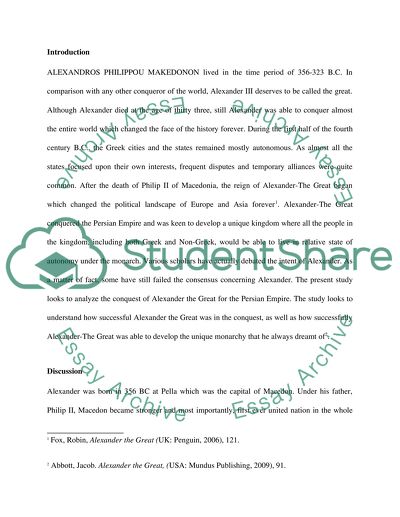Cite this document
(“Alexander the Great: Conquest of Persia Research Paper”, n.d.)
Alexander the Great: Conquest of Persia Research Paper. Retrieved from https://studentshare.org/history/1481449-alexander-the-great-s-conquest-of-persia
Alexander the Great: Conquest of Persia Research Paper. Retrieved from https://studentshare.org/history/1481449-alexander-the-great-s-conquest-of-persia
(Alexander the Great: Conquest of Persia Research Paper)
Alexander the Great: Conquest of Persia Research Paper. https://studentshare.org/history/1481449-alexander-the-great-s-conquest-of-persia.
Alexander the Great: Conquest of Persia Research Paper. https://studentshare.org/history/1481449-alexander-the-great-s-conquest-of-persia.
“Alexander the Great: Conquest of Persia Research Paper”, n.d. https://studentshare.org/history/1481449-alexander-the-great-s-conquest-of-persia.


